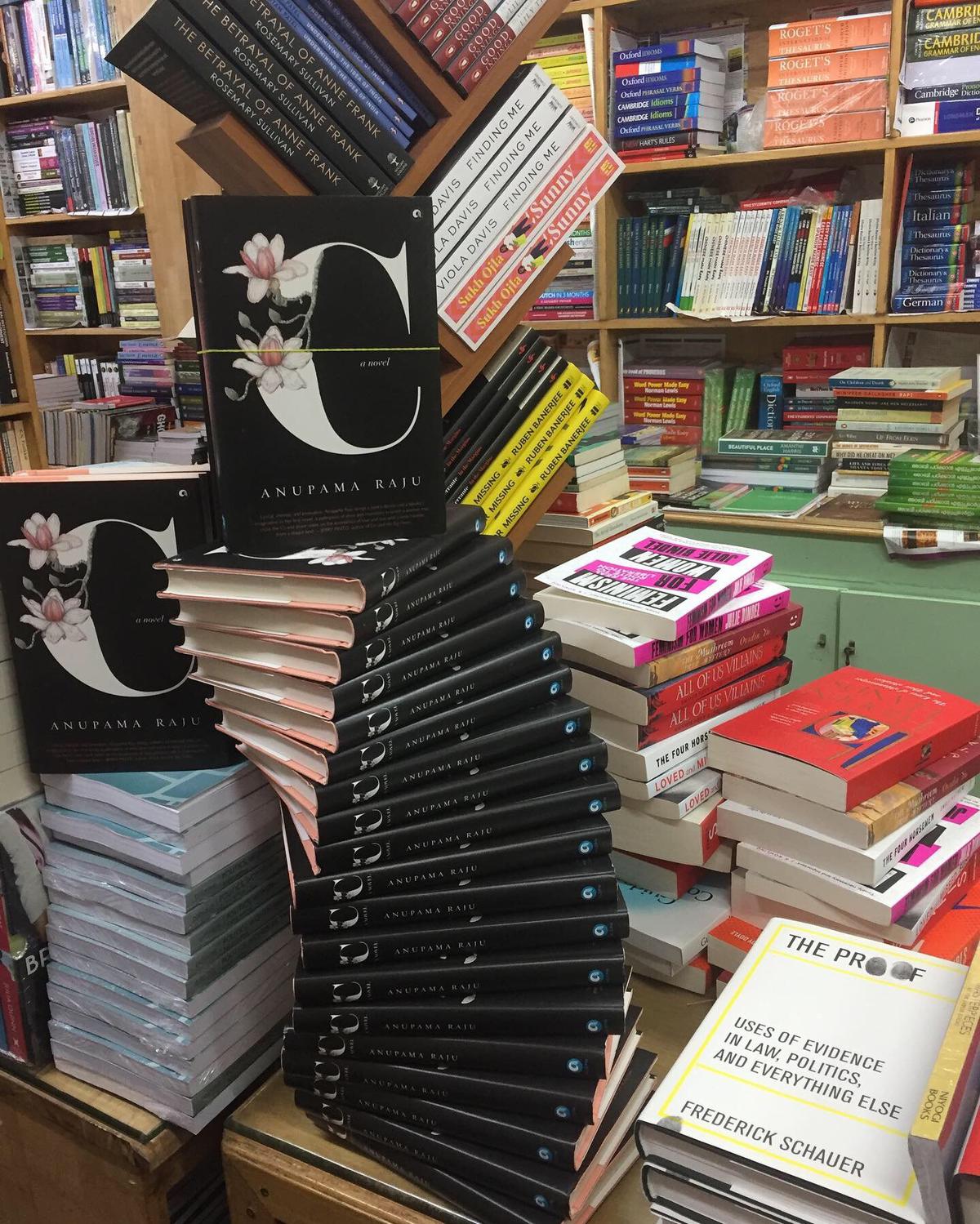Anupama Raju’s C, A Novel, a mix of prose and verse, dwells on the travails of an author and her relationship with people and places
Anupama Raju’s C, A Novel, a mix of prose and verse, dwells on the travails of an author and her relationship with people and places
When a poet writes a novel, verses and prose blend in, enriching the narrative and making the reader a part of the it. So it is with Anupama Raju’s first novel, C, A Novel.
Says Anupama: “The prose and poetry mix was something I wanted to try as an experiment. The idea was born around the same time. I never thought I would write a novel, but I wanted to ensure that poetry was a part of the novel because I had always been writing poems; that is why I thought poetry has to have a legitimate space in the book.” Anupama’s first published book was Nine, an anthology of poems.
Her books come with crisp titles. “People did wonder why it was called Nine,” she adds. Although she is not sure if it succeeds as a technique, she felt it would be nice to create some suspense about the book.
C, A Novel, written by Anupama Raju
| Photo Credit: Special arrangement
C is about a nameless writer, brooding over her love, again nameless, nursing many wounds and soaking in the moods of the city she has chosen to live in. However, the writer is forever wandering in her thoughts, in her travels and even in her perambulations around her temporary home. She moves across continents, cities and centuries and encounters strange characters.
“It was an organic process and I just let my imagination free. I took about three to four years to write C,” she says.

Copies of Anupama Raju’s first book of fiction, C, A Novel, at Modern Book Centre in Thiruvananthapuram
| Photo Credit: SPECIAL ARRANGEMENT
According to her, C could mean a city, because that is an important character in her book. She explains that she did not want to give the cities’ real or fictional names, so it remained as C. In fact, none of the main characters has a name, neither the protagonist nor the man she is constantly pining for although he is present in every thought of hers. Anupama says she wanted to give a sense of universality to her main characters and that is why she left them nameless.
“Somehow, I never felt the protagonist needed a name. I felt she was present as it is, even without a name. I felt a name would be limiting in many ways; she is telling the story, even the city itself is telling a story and it is just C.”
Anupama takes the reader into a world that her protagonist inhabits — we breathe the air, smell the fragrances and feel the biting cold wind on our skin. This tale of two cities — C where she lives and C, where she used to live, is painted in evocative prose.
“For me travel is a spiritual experience. There is a lot you can discover and a lot can happen when you move to a new place, when you move away from the familiar. There are verses that describe places and cities,” says Anupama.
Pointing out that although everyone says cities are about people and they give it a character, there is also something distinctive about a place.
“I wanted to give the city, C, a voice and, not necessarily, a human voice. I wanted to see how it would be if the city was the theme and is watching people come and go and is paying attention to the passerby, travellers, tourists…. I wanted to see how the city feels about it. That is why I gave it a separate voice,” she elaborates.
Continuing on the city, she says: “She (the city) is observing the storyteller, the people and the characters. She is talking to the reader too.”
The unrest that the protagonist is going through is balanced by the poise and wisdom in the city. While the nameless writer is lost, longing and going through her ups and downs, the city seems to be keeping a protective eye over her.
“There are references to many cities — Chennai, places in Kerala, cities abroad…. Chennai is my hometown, so there are glimpses of the city. But it could be any Indian city. If you are a resident of any city, you learn to love it despite its problems. That is how the protagonist sees it too. There are people she does not want to see but she still loves the cities,” elaborates Anupama.
She admits that the writing took time and patience to breathe life into her characters. “There were chapters that would flow. But it was not easy. I had to give it (the novel) plot, structure; I had to follow the rules of fiction and find out how to break those. I wanted do something with the narrative. As I was trying something new, it took time but I was in no rush to complete C.”
The book concludes with the picture of a more confident protagonist, who seems to have found herself, thanks to C. She seems more reassured, more in control of her feelings.
She recalls that Ayyappa Paniker, one of her earliest mentors, used to tell her ‘keep writing, doesn’t mater where or when you publish, when it is ready, you will know’.
“I always keep that in mind. Many of the poems in Nine had been published in various publications. But I had to wait for ten years to publish it as a collection. In the case of C, I was writing and rewriting… I would chuck out entire paragraphs. I had to give life to the characters. They had to speak naturally, speak like us…,” she says.
The book, published by Aleph, was released at Alliance Francaise de Trivandrum by Shashi Tharoor.
























